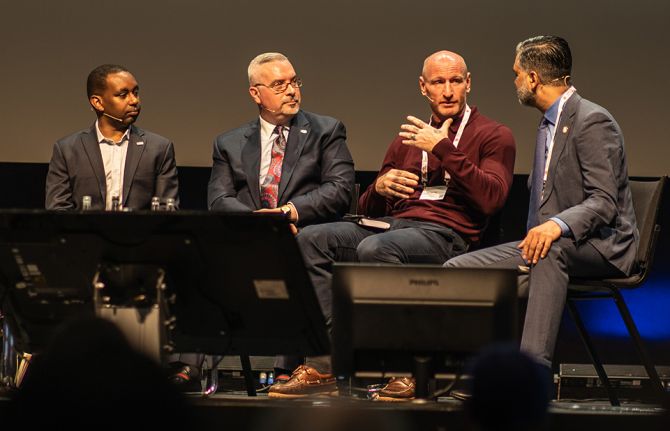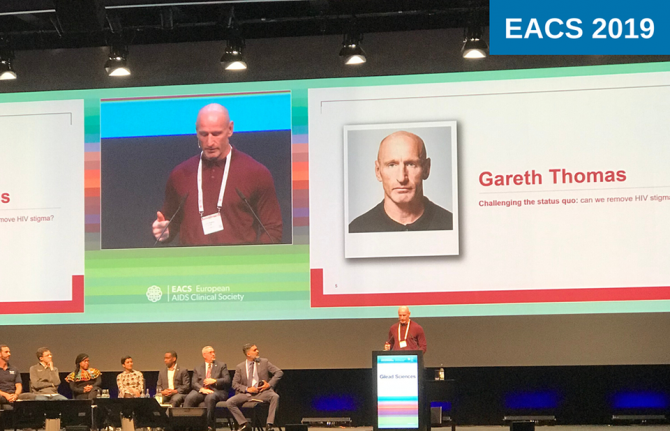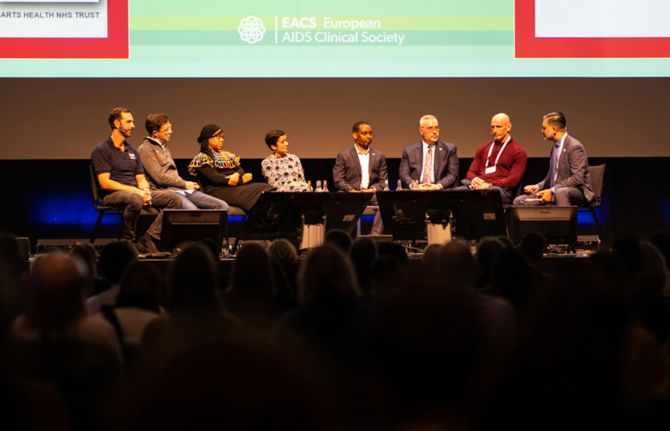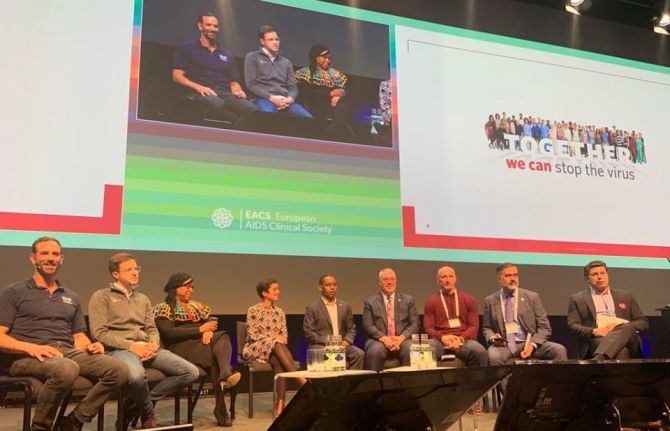




Feature Story
Former Welsh Rugby Captain Gareth Thomas speaks passionately about confronting HIV-related stigma
11 November 2019
11 November 2019 11 November 2019Welsh rugby ace Gareth Thomas has spoken out about the urgent need to confront HIV-related stigma head on. Speaking at a special event during the 17th European AIDS Conference, which was held in Basel, Switzerland, from 6 to 9 November, Mr Thomas said that he wants to help create an environment that breaks stigma and where people can make educated decisions based on facts and be free to talk openly about HIV.
It was the first time that the former Welsh rugby captain had spoken in front of an audience about his decision to publicly disclose his HIV status. He talked of the overwhelming reaction and public support following his disclosure and the airing of the BBC documentary he made about living with HIV, which included footage of him completing the International Iron Man triathlon in Wales.
He spoke of his determination to show people that living with HIV can also mean living a long, fit and healthy life and that medical advances now mean that with access to effective treatment, people living with HIV cannot transmit the virus, advances that he said not enough people know about.
“I wanted to challenge stigma head on,” said Mr Thomas. “I wanted people to see that I was capable of swimming two and a half miles in the sea, cycling 112 miles and running a marathon with HIV. If I can do that, we can do anything. Since that day, I have received nothing but support and love.”
The event was moderated by the Director of the UNAIDS Eastern Europe and Central Asia Regional Support Team, Vinay Saldanha, and shone a spotlight on the power of partnerships to advance progress towards ending AIDS. The participants included a panel of international experts working in the field of community-led organizations, funding, international partnerships and activists living with HIV.
Advocate Bruce Richman, Founder and Executive Director of the Undetectable = Untransmittable (U = U) campaign, spoke about the importance of U = U to overcome the stigma experienced by people living with and affected by HIV and how the campaign has become a public movement to break down fear and misunderstanding around HIV.
“U = U sets people living with HIV free from the fear of transmission,” said Mr Richman. “We have been living with and dying from HIV stigma for over 35 years. U = U builds our partnership to end that stigma.”
Head of the sexual health charity the NAZ Project in London, United Kingdom, Marion Wadibia spoke of how partnerships can offer culturally specific sexual health services to people being left behind. “We need to integrate race into all our work,” she said.
She was joined by other panellists who talked about the importance of using bolder business unusual approaches to end AIDS in all communities and populations. Rageshri Dhairyawan, of Barts Health NHS Trust, London, cited Soul Sisters as an example of a partnership that provides support for women who are experiencing domestic abuse for sexual health services and HIV prevention. “Violence against women and girls is a leading driver of HIV transmission,” said Mr Dhairyawan.
The event, entitled Together We Can, was organized by Gilead Sciences. The conference joined together leading HIV experts, scientists, researchers, activists and communities of people living with HIV to discuss the latest progress towards ending AIDS in Europe.
The conference gave special attention to the growing HIV epidemics in eastern Europe and central Asia, examined progress towards the 90–90–90 targets, looked at cities and municipalities that have joined the Fast Track cities partnership, discussed models of care for people living with HIV as they get older and tacked eliminating HIV-related stigma and discrimination.
Webcasts, presentations and ePosters of the 17th European AIDS Conference are available on the European AIDS Clinical Society Resource Library for a period of three months.



